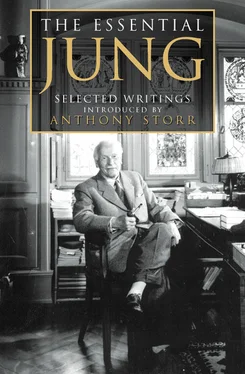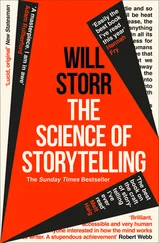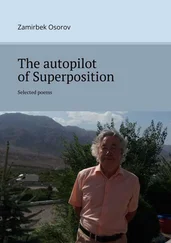If the repressed tendencies, the shadow as I call them, were obviously evil, there would be no problem whatever. But the shadow is merely somewhat inferior, primitive, unadapted, and awkward; not wholly bad. It even contains childish or primitive qualities which would in a way vitalize and embellish human existence, but convention forbids!
Jung goes on to show that confrontation with, and at least partial acceptance of, the shadow leads on to deeper problems and further encounters with other archetypal figures.
From “The Shadow” Aion, CW 9 ii, pars. 13–19
Whereas the contents of the personal unconscious are acquired during the individual’s lifetime, the contents of the collective unconscious are invariably archetypes that were present from the beginning. Their relation to the instincts has been discussed elsewhere. The archetypes most clearly characterized from the empirical point of view are those which have the most frequent and the most disturbing influence on the ego. These are the shadow, the anima, and the animus. The most accessible of these, and the easiest to experience, is the shadow, for its nature can in large measure be inferred from the contents of the personal unconscious. The only exceptions to this rule are those rather rare cases where the positive qualities of the personality are repressed, and the ego in consequence plays an essentially negative or unfavourable role.
The shadow is a moral problem that challenges the whole ego-personality, for no one can become conscious of the shadow without considerable moral effort. To become conscious of it involves recognizing the dark aspects of the personality as present and real. This act is the essential condition for any kind of self-knowledge, and it therefore, as a rule, meets with considerable resistance. Indeed, self-knowledge as a psychotherapeutic measure frequently requires much painstaking work extending over a long period.
Closer examination of the dark characteristics – that is, the inferiorities constituting the shadow – reveals that they have an emotional nature, a kind of autonomy, and accordingly an obsessive or, better, possessive quality. Emotion, incidentally, is not an activity of the individual but something that happens to him. Affects occur usually where adaptation is weakest, and at the same time they reveal the reason for its weakness, namely a certain degree of inferiority and the existence of a lower level of personality. On this lower level with its uncontrolled or scarcely controlled emotions one behaves more or less like a primitive, who is not only the passive victim of his affects but also singularly incapable of moral judgment.
Although, with insight and good will, the shadow can to some extent be assimilated into the conscious personality, experience shows that there are certain features which offer the most obstinate resistance to moral control and prove almost impossible to influence. These resistances are usually bound up with projections, which are not recognized as such, and their recognition is a moral achievement beyond the ordinary. While some traits peculiar to the shadow can be recognized without too much difficulty as one’s own personal qualities, in this case both insight and good will are unavailing because the cause of the emotion appears to lie, beyond all possibility of doubt, in the other person. No matter how obvious it may be to the neutral observer that it is a matter of projections, there is little hope that the subject will perceive this himself. He must be convinced that he throws a very long shadow before he is willing to withdraw his emotionally-toned projections from their object.
Let us suppose that a certain individual shows no inclination whatever to recognize his projections. The projection-making factor then has a free hand and can realize its object – if it has one – or bring about some other situation characteristic of its power. As we know, it is not the conscious subject but the unconscious which does the projecting. Hence one meets with projections, one does not make them. The effect of projection is to isolate the subject from his environment, since instead of a real relation to it there is now only an illusory one. Projections change the world into the replica of one’s own unknown face. In the last analysis, therefore, they lead to an autoerotic or autistic condition in which one dreams a world whose reality remains forever unattainable. The resultant sentiment d’incomplétude and the still worse feeling of sterility are in their turn explained by projection as the malevolence of the environment, and by means of this vicious circle the isolation is intensified. The more projections are thrust in between the subject and the environment, the harder it is for the ego to see through its illusions. A forty-five-year-old patient who had suffered from a compulsion neurosis since he was twenty and had become completely cut off from the world once said to me: “But I can never admit to myself that I’ve wasted the best twenty-five years of my life!”
It is often tragic to see how blatantly a man bungles his own life and the lives of others yet remains totally incapable of seeing how much the whole tragedy originates in himself, and how he continually feeds it and keeps it going. Not consciously, of course – for consciously he is engaged in bewailing and cursing a faithless world that recedes further and further into the distance. Rather, it is an unconscious factor which spins the illusions that veil his world. And what is being spun is a cocoon, which in the end will completely envelop him.
One might assume that projections like these, which are so very difficult if not impossible to dissolve, would belong to the realm of the shadow – that is, to the negative side of the personality. This assumption becomes untenable after a certain point, because the symbols that then appear no longer refer to the same but to the opposite sex, in a man’s case to a woman and vice versa. The source of projections is no longer the shadow – which is always of the same sex as the subject – but a contrasexual figure. Here we meet the animus of a woman and the anima of a man, two corresponding archetypes whose autonomy and unconsciousness explain the stubbornness of their projections. Though the shadow is a motif as well known to mythology as anima and animus, it represents first and foremost the personal unconscious, and its content can therefore be made conscious without too much difficulty. In this it differs from anima and animus, for whereas the shadow can be seen through and recognized fairly easily, the anima and animus are much further away from consciousness and in normal circumstances are seldom if ever realized. With a little self-criticism one can see through the shadow – so far as its nature is personal. But when it appears as an archetype, one encounters the same difficulties as with anima and animus. In other words, it is quite within the bounds of possibility for a man to recognize the relative evil of his nature, but it is a rare and shattering experience for him to gaze into the face of absolute evil.
Before proceeding to what Jung has to say about the contrasexual archetypes of animus and anima, it is necessary to outline his conception of the persona, since “a compensatory relationship exists between persona and anima.”
From “The Relations between the Ego and the Unconscious” Two Essays, CW 7, pars. 305–9
The persona is a complicated system of relations between individual consciousness and society, fittingly enough a kind of mask, designed on the one hand to make a definite impression upon others, and, on the other, to conceal the true nature of the individual. That the latter function is superfluous could be maintained only by one who is so identified with his persona that he no longer knows himself; and that the former is unnecessary could only occur to one who is quite unconscious of the true nature of his fellows. Society expects, and indeed must expect, every individual to play the part assigned to him as perfectly as possible, so that a man who is a parson must not only carry out his official functions objectively, but must at all times and in all circumstances play the role of parson in a flawless manner. Society demands this as a kind of surety; each must stand at his post, here a cobbler, there a poet. No man is expected to be both. Nor is it advisable to be both, for that would be “queer.” Such a man would be “different” from other people, not quite reliable. In the academic world he would be a dilettante, in politics an “unpredictable” quantity, in religion a free-thinker – in short, he would always be suspected of unreliability and incompetence, because society is persuaded that only the cobbler who is not a poet can supply workmanlike shoes. To present an unequivocal face to the world is a matter of practical importance: the average man – the only kind society knows anything about – must keep his nose to one thing in order to achieve anything worth while, two would be too much. Our society is undoubtedly set on such an ideal. It is therefore not surprising that everyone who wants to get on must take these expectations into account. Obviously no one could completely submerge his individuality in these expectations; hence the construction of an artificial personality becomes an unavoidable necessity. The demands of propriety and good manners are an added inducement to assume a becoming mask. What goes on behind the mask is then called “private life.” This painfully familiar division of consciousness into two figures, often preposterously different, is an incisive psychological operation that is bound to have repercussions on the unconscious.
Читать дальше












